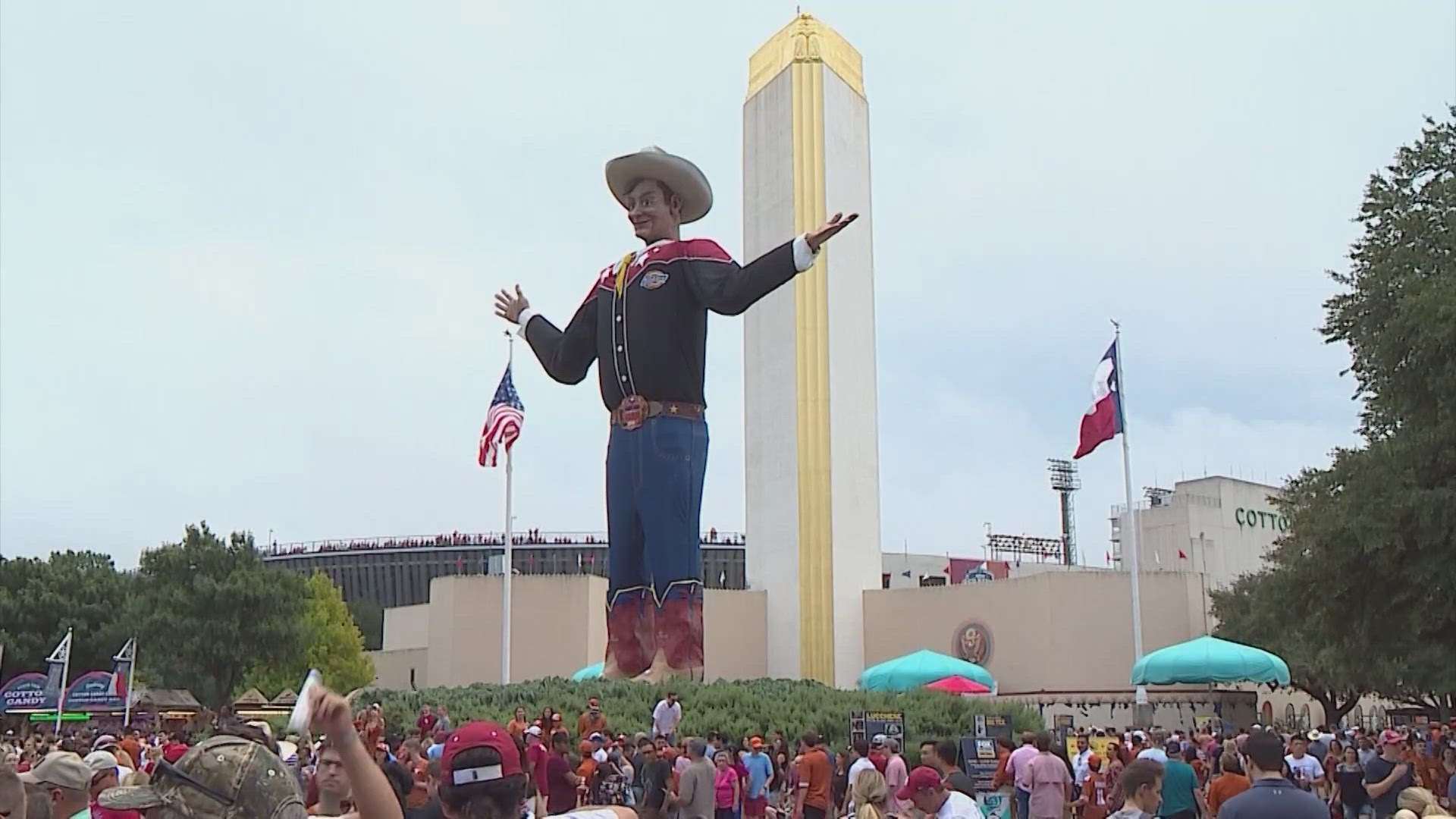DALLAS — This article was originally published by our content partners at the Texas Tribune. Read the original article here.
Attorney General Ken Paxton this week withdrew an eight-year-old legal opinion that gave private nonprofits the green light to ban guns on land they lease from a city — a move that comes as Paxton challenges the nonprofit State Fair of Texas’ ban on firearms.
Paxton, a Republican who ardently opposes gun restrictions, sued the city of Dallas and state fair officials last month, arguing the State Fair of Texas had violated state law that largely bars local governments from restricting firearms on land they own or lease. Fair Park, the site where the fair is held, is owned by the city of Dallas and leased to the nonprofit that runs the fair. The event is set to run from Sept. 27 through Oct. 20.
In court filings, Paxton argued that the private fair organizer “acts under authority” of the city and cannot ban guns at the site. City and fair officials have insisted the city has nothing to do with how the nonprofit operates the event and played no role in this year’s gun ban — thus making the policy fair game, they argue. Both entities say the attorney general’s case is at odds with an opinion he issued in 2016, which found that private entities could post notices banning guns on government-leased land without fear of civil penalty as long as said government “has no control over the decision to post such notice.”
Later in 2016, an official from Paxton’s office cited that opinion in finding that firearm-banning notices could be posted at the entrances of the Fort Worth Zoo because, while the zoo is on city-owned land, the city contracts with a nonprofit corporation to oversee the zoo’s operations and management.
The attorney general’s website states that the 2016 opinion — which is legally nonbinding — was withdrawn “pending issuance” of Paxton’s forthcoming opinion responding to two Republican lawmakers who questioned last month whether the State Fair of Texas was “operating jointly” with the city and thus prohibited from banning firearms at the fairgrounds. A spokesperson for Paxton’s office did not respond to a request for comment Friday.
In their letter to Paxton requesting his opinion, state Sen. Mayes Middleton of Galveston and state Rep. Dustin Burrows of Lubbock argued that the city “exerts significant control over the operations of the fair” and is “intertwined” with the private organizer.
Attorneys for the State Fair of Texas denied the claim, writing to Paxton that it was based on “mistaken assumptions” about the nonprofit’s relationship with the city.
“There is no overlapping leadership structure between SFOT and the City,” the nonprofit’s attorneys wrote. “SFOT is currently governed by a 20-person board of directors, none of whom are government employees, government officials, or government appointees. SFOT is also financially independent and does not receive any money from the City to host the Fair.”
The fair’s attorneys also pointed to a prior court ruling that found the city “has no say in SFOT’s internal decision making” and shot down a case that alleged the State Fair was essentially “a shell corporation” for the city.
An official from Paxton’s office wrote a letter last month to Dallas interim city manager Kimberly Tolbert that threatened legal action, noting that if the State Fair had relied on Paxton’s 2016 opinion in going ahead with its gun ban, “such reliance was misplaced.” The letter, from Paxton’s administrative law chief Ernest Garcia, did not explain further why the opinion did not apply in this case.
Fair officials have said their firearm ban is aimed at making the event safer, following a shooting at last year’s fair in which three people were injured by gunfire. GOP state lawmakers have urged the fair to reverse course, arguing the policy is misguided and would have the opposite effect. State Sen. Bob Hall, R-Edgewood, said last month he would skip the fair because the gun ban would make it a “free-fire-zone for criminals” that was too dangerous to attend.

